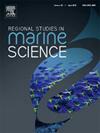评估公众对黄海微塑料污染的风险认知和治理方案
IF 2.4
4区 环境科学与生态学
Q3 ECOLOGY
引用次数: 0
摘要
海洋微塑料(MMP)直径小于5 毫米,是一种日益增长的环境污染物,受到全世界的关注。它们对海洋生物有害,并对人类健康构成潜在风险。适当的治理过程需要公众的认识和支持,尽管关于风险认识如何影响管理战略选择的信息有限。本研究的目的是:(1)确定胶州湾居民对MMP相关风险的认知;(2)评估治理选择;(3)调查社会人口因素和感知风险对支付意愿(WTP)的影响。采用结构化问卷对442名青岛市居民进行问卷调查。受访者对MMP的感知健康和环境风险进行了评级,并使用选择实验模型(CEM)评估了治理方案。使用潜在类别分析和混合逻辑回归来确定偏好和治理支持异质性的决定因素。大多数答复者(69.2 %)也认为MMP对人类健康构成严重威胁,但很少有人认为存在严重的生态风险。最受民众欢迎的政策变量包括监测项目、对一次性塑料的平均限制以及对回收系统的矛盾态度。年轻和受教育程度较高的受访者更愿意付费,而年龄较大的受访者则不太支持回收行动。潜在类分析确定了两类:一类是综合管理方法,偏好所有三种策略;另一类是预防性监管方法,偏好监测和塑料限制,但对回收的支持较弱。研究结果突出了将治理与社会价值观结合起来的重要性。应强调加强监测网络和公开数据共享,以此作为建立信心和认识的一种方式。塑料禁令必须通过投资于可生物降解的替代品和改善回收系统来逐步实施,社区参与是长期控制MMP的必要条件。研究强调了风险认知在确定社会支持结果方面的重要性,为新的海洋污染物的适应性治理提供了基于证据的建议。本文章由计算机程序翻译,如有差异,请以英文原文为准。
Evaluating public risk perception and governance options for microplastic contamination in the Yellow Sea
Marine microplastics (MMP), are less than 5 mm in diameter, are a growing environmental pollutant of worldwide interest. They are hazardous to marine life and pose a potential risk to human health. The proper governance process requires public awareness and support, although there is limited information on how risk perception influences choices regarding management strategies. The objectives of this study were (1) to determine people's perceptions of the risks associated with MMP in Jiaozhou Bay, China, (2) to assess the governance choices, and (3) to investigate the impact of socio-demographic factors and perceived risks on willingness to pay (WTP) to mitigate them. A questionnaire survey was conducted among 442 Qingdao residents using a structured questionnaire. Respondents rated the perceived health and environmental risks of MMP and evaluated governance scenarios using the Choice Experiment Model (CEM). Latent class analysis and hybrid logistic regression were used to determine the determinants of preferences and heterogeneity in governance support. The majority of respondents (69.2 %) also identified MMP as a severe threat to human health, but few identified strong ecological risks. The policy variables that were most popular among the population included monitoring programs, average restrictions on single-use plastics, and ambivalent attitudes towards recycling systems. The younger and more educated respondents were more willing to pay, whereas the older respondents were less supportive of recycling actions. Latent class analysis identified two categories: one with a comprehensive management approach, which preferred all three strategies, and one with a preventive regulation approach, which preferred monitoring and plastic restrictions but weakly supported recycling. The results highlight the importance of aligning governance with social values. Enhancement of monitoring networks and open data sharing should be emphasized as a way of establishing confidence and awareness. Bans on plastic must be implemented gradually by investing in biodegradable substitutes and improving recycling systems, with community participation necessary to control MMP over the long term. Research highlights the importance of risk perception in determining the outcome of social support, providing evidence-based advice on the adaptive governance of new marine pollutants.
求助全文
通过发布文献求助,成功后即可免费获取论文全文。
去求助
来源期刊

Regional Studies in Marine Science
Agricultural and Biological Sciences-Ecology, Evolution, Behavior and Systematics
CiteScore
3.90
自引率
4.80%
发文量
336
审稿时长
69 days
期刊介绍:
REGIONAL STUDIES IN MARINE SCIENCE will publish scientifically sound papers on regional aspects of maritime and marine resources in estuaries, coastal zones, continental shelf, the seas and oceans.
 求助内容:
求助内容: 应助结果提醒方式:
应助结果提醒方式:


